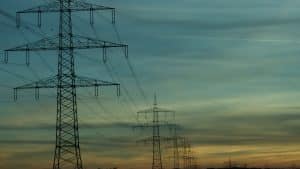AD benefits highlighted in Scottish Parliament debate On 6 January 2026, the Scottish Parliament held…
ESO’s unveils its plans to expedite the electricity grid connections in UK
In a recent press release, the Electricity System Operator (ESO) said “Get on, get back or get out of the energy queue” to the UK’s energy generators, as the ESO introduced additional targeted reforms to further speed up connections to the electricity grid.

The ESO plans to prioritise certain projects on the waiting list to receive connections to the electricity grid over others to provide connections earlier than expected. The ESO is now in contact with the developers to ask for updates on the renewable energy projects, to determine which projects can be connected to the grid more quickly.
The Electricity System Operator will use multiple criteria such as ‘project financing, land acquisition, and planning permission’ to determine if a particular project is suitable to be allowed to cut the queue and be connected to the grid earlier than expected. Projects that cannot meet these requirements will be given the choice to either step back or leave the queue to make way for the ready-to-go-online projects to be connected faster.
Energy generators that are not progressing and will not meet their connection date will either be able to choose to move backwards or leave the queue, in order to make way for projects that want to connect and are delivering on their milestones. These reforms will mean that projects will be able to connect up to ten years earlier.
Currently, around £200 billion worth of renewable energy projects are facing a 15-year waiting period in the waiting list. This delay poses a major threat to the Electricity System Operator’s goal of achieving a net-zero power grid by 2035.
The ESO further estimates that there are 220 projects waiting to connect to the national transmission system before 2026, totalling 40GW. While this capacity is enough to provide power to more than double the peak demand for summer months in all of Great Britain, only half of these projects currently have planning consent. Delay in getting planning permission for the new projects is also a major barrier for the projects to be completed, and with this new reform of the ESO, these delays in planning permission add another hindrance to the development of new renewable energy projects, especially in the AD sector.
ADBA members raised concerns about connections to the network
ADBA members have previously raised concerns regarding the severe delays they are facing when trying to obtain timely connections to the network. ADBA policy team communicated these concerns to the DESNZ, Ofgem, and the National Grid ESO, on multiple occasions in the past quarter.
In response, Ofgem confirmed that this issue is a very high priority for them and that they are actively collaborating with the government, the Electricity System Operator (ESO), and transmission and distribution network companies to explore ways to enhance network planning and create more capacity. Ofgem states that this will help streamline user connections and prevent delays experienced by our members.
Furthermore, alongside work to accelerate network investment, Ofgem is also reviewing the rules for governing how the network companies manage connection requests, aiming to improve timescales and prioritize projects.
We believe there are opportunities to improve connection timescales through more active and consistent management of distribution connection queues, allowing the grid to serve customers that are ready to progress with their connection requests much faster
Ofgem has also emphasized the importance of transitioning from a reactive approach to network investment to one that anticipates new demands and strategically expands the grids.
They further anticipate a significant increase in connections to the electricity distribution network, as the transition to net zero accelerates. To ensure timely service, Ofgem is also introducing a new major connections incentive under RIIO-ED2. Distribution Network Operators (DNOs) will be assessed based on customer satisfaction, and financial penalties will be imposed for failure to meet standards.
Finally, Ofgem confirms that they have committed an investment of £3 billion during RIIO-ED2, to prevent connection delays. This funding can increase automatically if additional demand arises, enabling DNOs to undertake connections and reinforcements promptly in support of net-zero targets.
ADBA policy will continue to engage with the relevant stakeholders to support the UK’s AD sector mitigate this challenge along with other barriers the sector faces. If you also face any similar challenges, please email Wasundara.Doradeniya@adbioresources.org to raise your concerns with us.
